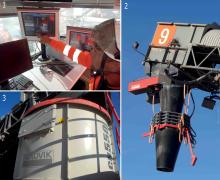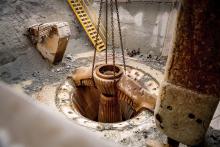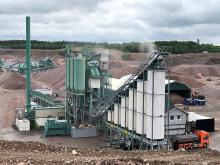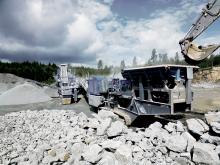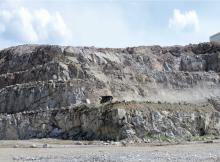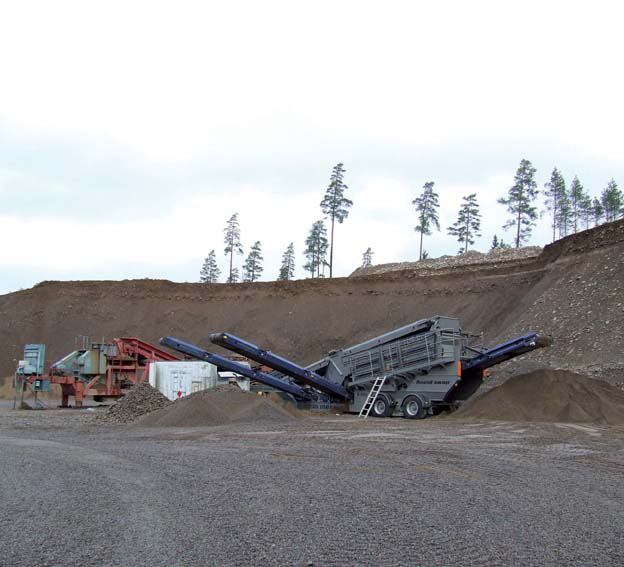
After spotting the need for aggregates in his home region in Sweden at just 16, Bernt Hagen has spent his working career developing his quarrying business
Owning and operating a quarry is probably not at the forefront of most 16 year olds' minds, but for one such teenager in 1950s Sweden it certainly was. For Bernt Hagen, a trip into the city with his 21-year old brother to buy a wheeled loader was the start of what is now a family enterprise centred on aggregates.
In addition to five quarries in the Vetlanda region of southern Sweden, the company also runs a transport business, a small hotel and a café in the area. But the business started when Hagen used his newly acquired wheeled loader to extract gravel from his mother's farm to supply to the local construction industry.
At the tender age of 16 he spotted that there was a need for building materials in the region but at that time everything was dug by hand. His ability to extract material on a larger scale soon firmly positioned him as a key player with the local construction market.
It is clear that Hagen likes to have a close relationship with surrounding communities and uses the same approach when it comes to buying new equipment for the quarries. Hagen was one of the first customers to buy equipment from Jönköping-based screening specialist
Working at Hagen's Landsbro sand and gravel quarry is the latest addition the company's fleet - a Maskin Mekano S1403 screen which was delivered in July. The screen is the latest innovation from Maskin Mekano and is designed to be operated on a day to day basis by one person and this suits the Landsbro site ideally. Here one operator drives the
The site, which Hagen acquired from
The site does not operate full-time, according to Hagen, and just produces material as demand arises and the mobile nature of the crushing and screening operation means that the units can be quickly moved to another of the company's sites if needed, or carry out contract crushing for another quarry operator. Similarly, when the quarry's stockpile of over-sized material reaches a certain size, Hagen brings his recently acquired
The rest of the time, the Terex machine is used at the company's only hard rock quarry which is run on a day to day basis by Hagen's son. At this site Hagen extracts around 250,000tonnes of granite each year using drill and blast techniques to quarry the high quartzite material.
At this site, Hagen contracts the drilling and blasting to NCC which carries out blasts four times a year, using 15 to 20m benches and 2.2 to 2.5m spacings of 76mm blast holes. Hagen said that the quarry did experiment with 38m high benches at one point but had problems with drill hole deviation that meant the 20m maximum height was more efficient.
After each blast, the material is fed into a
Hagen said that he favours mobile units even for the granite quarry because it allows him to move the machines close to the blast face and minimise the hauling distances.
The site produces five grades of aggregates - 2 to 4mm, 4 to 8mm, 8 to 16mm, 16 to 22mm and over 32mm - and this is mostly used in road construction and sometimes by the local building industry.
Hagen's granite quarry was opened in 1975 and still has more than 100 years of reserves left, so the mobile plant is likely to be kept busy for many more years. However, the Landsbro site's permission will cease next summer, so the equipment will be redistributed to other Hagen quarries and the ground will be reprofile ready for it to be returned to forest.
Despite the prospect of down-sizing his quarry empire, Hagen's other business interests will still provide the company with growth potential. The transport business, which is run by Hagen's daughter, has 30 trucks and six are used to deliver the company's aggregates to customers, while the others are designed for use in the chemicals sector.
Offices for the transportation and quarry business are close to his mother's farm where the business first started and co-located with the hotel and café.

